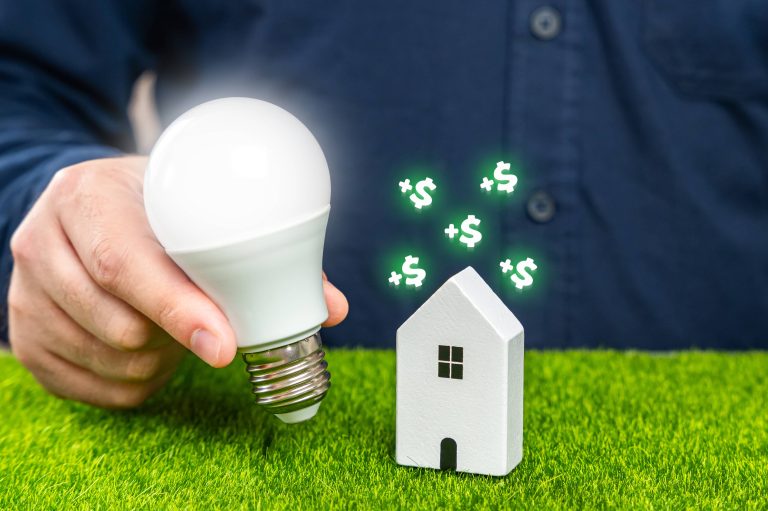
In an age where the line between technology and daily living continues to blur, the smart home revolution is at the forefront, driving innovation and convenience into our daily routines. Among the myriad of developments, AI-powered smart home assistants represent one of the most exciting frontiers. These intelligent systems are poised to transform our living environments into seamless, responsive, and intuitive spaces. So, what’s coming next in the world of AI-powered smart home assistants? Let’s dive into the future innovations and gadgets that promise to reshape our homes.
Beyond Voice Commands: Anticipatory Intelligence
Voice-activated smart assistants like Amazon’s Alexa, Google Assistant, and Apple’s Siri have already made a significant impact. They answer questions, control devices, and manage our schedules. However, the next generation of AI-driven assistants will surpass mere voice commands by incorporating anticipatory intelligence. This means that instead of waiting for directives, these assistants will proactively offer solutions and perform tasks based on patterns and data collected over time.
Imagine waking up in the morning and your AI assistant has already adjusted the thermostat to your preferred temperature, prepared your coffee, and scheduled your appointments considering traffic conditions. It could even remind you of that crucial meeting, suggesting an earlier departure time due to a sudden weather change. The integration of AI with home sensors and data analytics will craft a hyper-personalized living experience that was once the realm of science fiction.
Enhanced Natural Language Processing (NLP)
Current smart assistants still sometimes falter with complex commands or nuanced language. The future, however, holds significant improvements in Natural Language Processing (NLP), making these assistants far more competent conversational partners. Enhanced NLP will allow AI to understand and interpret context, emotions, and even sarcasm, resulting in more fluid and natural interactions.
This leap forward means you won’t have to remember exact phrases or commands. Instead, you could engage in a more human-like conversation. For instance, you might say, “I’m feeling cold,” and your assistant will understand to increase the heating without further prompting. Such intuitive interactions will form the backbone of more immersive and responsive smart home environments.
Integration with Wearables and Health Monitoring
Future smart home assistants will likely work in tandem with wearable tech and health monitoring systems, providing a holistic approach to personal wellness and home management. These AI assistants could track your vital signs, sleep patterns, and physical activity through devices such as smartwatches or health bands.
For example, if your wearable reports high stress levels, your assistant might play soothing music, dim the lights, or even suggest a meditation session. If any irregular health metrics are detected, it could alert you or your healthcare provider, ensuring timely intervention. This seamless integration means your smart home will not only be more responsive but also more attuned to your personal well-being.
Advanced Security Features
The future of AI-powered smart home assistants includes robust advancements in home security. Utilizing AI enhancements, these systems will provide fortified security measures, including facial recognition, behavior analysis, and anomaly detection.
For instance, imagine a smart home assistant recognizing the usual time you return home. If unusual activity is detected, such as someone entering your home at an unusual time or a window being opened unexpectedly, it could immediately alert you and the authorities. Enhanced security integrations will also allow for remote monitoring and control via your smart device, giving you peace of mind no matter where you are.
Intelligent Energy Management
With growing concerns about environmental sustainability, AI-powered smart home assistants will play a pivotal role in energy management. These systems will use AI to monitor and optimize energy consumption throughout your home, identifying patterns and suggesting ways to reduce wastage.
Imagine a future where your smart assistant automatically dims unnecessary lights, adjusts heating and cooling based on room usage, and turns off devices that are not in use. Additionally, integration with renewable energy sources like solar panels will enable these systems to optimize energy consumption based on real-time energy production and storage data, ensuring maximum efficiency and cost savings.
Personalized Entertainment Experiences
Entertainment within smart homes will become even more customized and immersive with the help of advanced AI assistants. By understanding your preferences and habits, these assistants will curate content explicitly tailored to your tastes. Whether it’s suggesting a new Netflix series, creating a custom playlist, or organizing virtual reality experiences, the focus on personalization will ensure a more engaging and enjoyable leisure time.
AI could also synchronize your entertainment with home automation features, setting the perfect mood lighting, adjusting sound systems, or even arranging smart projectors and screens for the optimal viewing experience. The goal is seamless integration, where your home environment adapts to enhance every form of entertainment you enjoy.
Seamless Connectivity and Interoperability
One of the significant hurdles in current smart home ecosystems is the challenge of interoperability between different devices and platforms. The future of AI-powered smart home assistants promises to overcome these barriers through improved connectivity and standardization.
Future assistants will function as central hubs, seamlessly integrating a variety of smart home devices, regardless of the manufacturer. This means you won’t have to worry about compatibility issues when adding new gadgets to your home network. AI will ensure that all devices communicate efficiently, providing a coherent and unified user experience.
Conclusion
The future of AI-powered smart home assistants is brimming with potential. As AI technology continues to evolve, we can expect our homes to become increasingly responsive, intuitive, and tailored to our individual needs. From anticipatory intelligence and enhanced NLP to advanced security and energy management, these innovations promise to make our living spaces safer, more efficient, and infinitely more convenient.
As a smart home enthusiast and blogger, keeping an eye on these emerging trends will not only keep you informed but also help you anticipate the ways these technologies will transform our daily lives. It’s an exciting time to be part of the smart home revolution, and the journey has only just begun. So, stay tuned, keep exploring, and embrace the future of smarter living!







